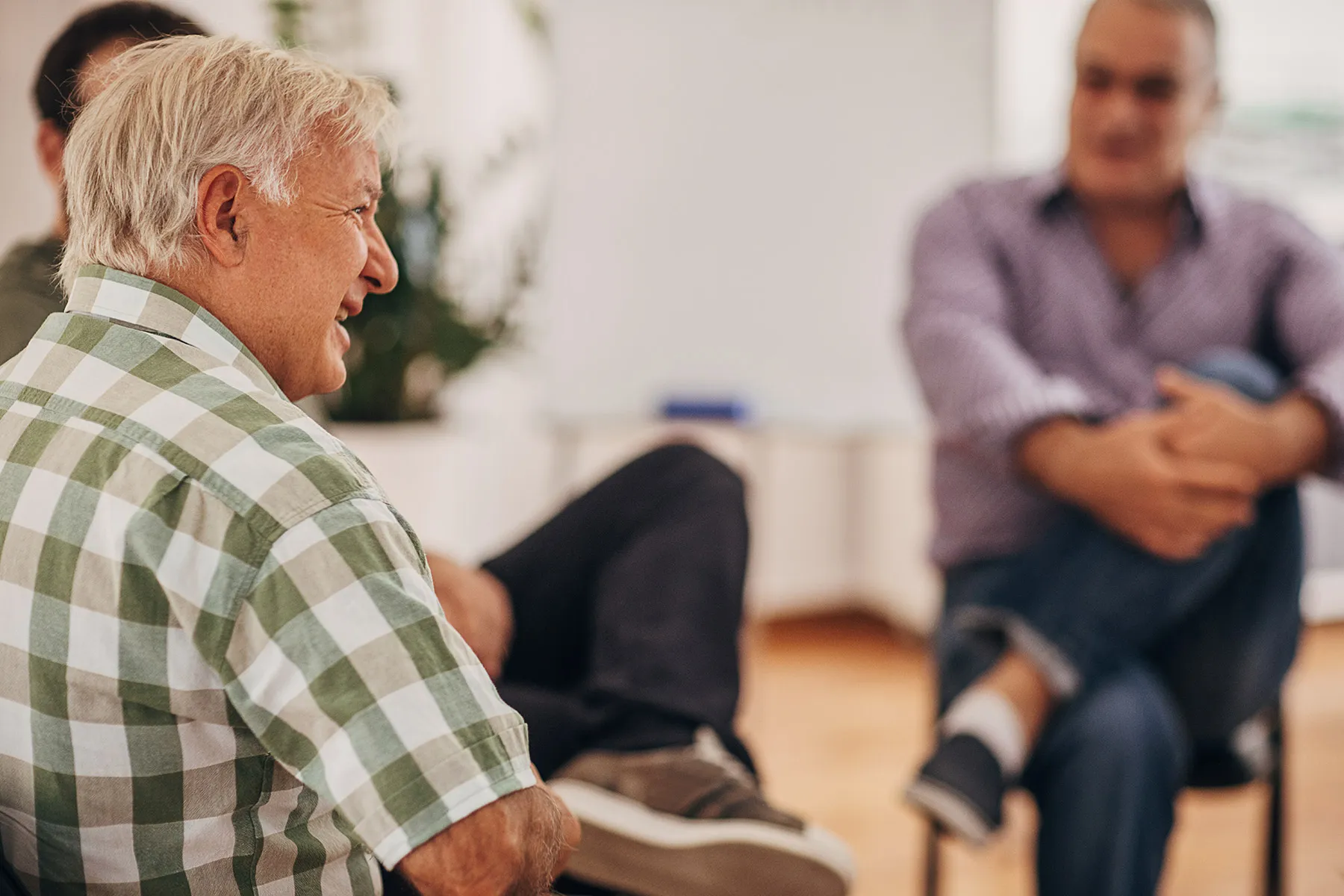With the right social support around you, managing life with geographic atrophy (GA) may be easier.
GA can affect many of your daily activities, such as cooking, driving, paying bills, using your computer, and working. You might not be able to do everything the same way you used to. “Social support is critical to adapting, both logistically and emotionally,” says Sam Dahr, MD, director of the Retina Division with McGovern Medical School at UTHealth Houston.
Why Connection Is Important
It can be challenging to manage the emotions that come with GA.
After being diagnosed with GA, some people feel depressed, anxious, or scared about losing their independence, or frustrated by how long it takes to do daily tasks. They might not want to see anyone or be around friends and family.
Not everyone feels these things, but it’s OK if you do. The important thing is to ask for help and take advantage of the support that’s out there for you so you can find a new normal.
Family and Friends
Your friends and family members can help you through the ups and downs of life with GA.
First, help them understand the facts.
Explain that even though you may be legally blind, GA doesn’t lead to complete blindness. It just makes it harder to do certain things. “It often leads to the inability to do fine motor work, read, and drive,” says Matt Starr, MD, an ophthalmologist at the Mayo Clinic in Rochester, MN.
Next, help them help you. “Family and friends may not be sure what type of help you may need or want,” says Preeti Subramanian, PhD, director of vision science research at the BrightFocus Foundation. Be open about your needs and your desire to be independent. “Open and honest discussions among everyone affected often leads to better understanding,” she says.
Be specific about how they can help. Here are some examples of things they can do to help you manage life with GA:
- Help with doctor appointments. You may need to see your doctor, vision specialist, and other team members regularly. Friends and family can drive you to office visits and help you keep track of appointments. “If you have trouble reading fine print, family members may be able to assist with organizing medicine bottles, checkbooks, and so forth,” Starr says.
- Help run errands. Family and friends can help you with errands, either by doing them for you or by driving you to the grocery store, bank, and pharmacy. They can also arrange ride-sharing services and help get you rides using services such as Uber or Lyft, says Jennifer L. Stone, an optometrist in Baltimore.
- Help with technology. There are many tools to help you see better and manage everyday tasks. “Computers and smartphones can be adapted for low vision within the accessibility settings,” Dahr says. For example, if you’re not sure how to add color contrast and increase the size of text and images, ask friends and family to help.
- Spend time together. Being with friends and family can help you feel less alone and bring you joy. By doing activities together, you may also find new hobbies and ways of enjoying your life. Your family and friends can organize social activities and spend time with you.
Finding Help in a Support Group
If you feel alone, a support group may help.
Support groups bring people with vision loss together to share their experiences and advice. Being with people who understand what you’re going through can help you feel less isolated. You may learn helpful tips, find information, and connect with resources. It’s also a place where you can express yourself and talk about how you’re feeling.
You can choose a GA support group that meets online or in person. Ask your vision specialist for suggestions. To find a group, try:
- BrightFocus AMD Community Circle
- FightingBlindness.org
- MDSupport.org
- Veterans Administration
- VisionAware
These tips may help you have a better experience at your support group meetings:
- Introduce yourself to the leader before the support group session starts.
- Arrive early to in-person groups so you have extra time to meet the leader and group members.
- Ask questions.
- Invite members to meet up outside the group to make new friends.
Your Medical Team
Get support by staying in touch with your vision team.
Ask your eye doctor and primary care doctor for suggestions if you’re finding it difficult to adjust to anything after being diagnosed with GA. Your doctor can help you come up with an exercise plan that works for you. Being active can help you manage any symptoms of anxiety and depression and improve your mood.
See a vision rehabilitation specialist. They can share tips and tricks so you can make the most out of the vision you have now.
Talk to a mental health professional. A therapist can help you manage the challenges of life with GA and improve your emotional well-being.







